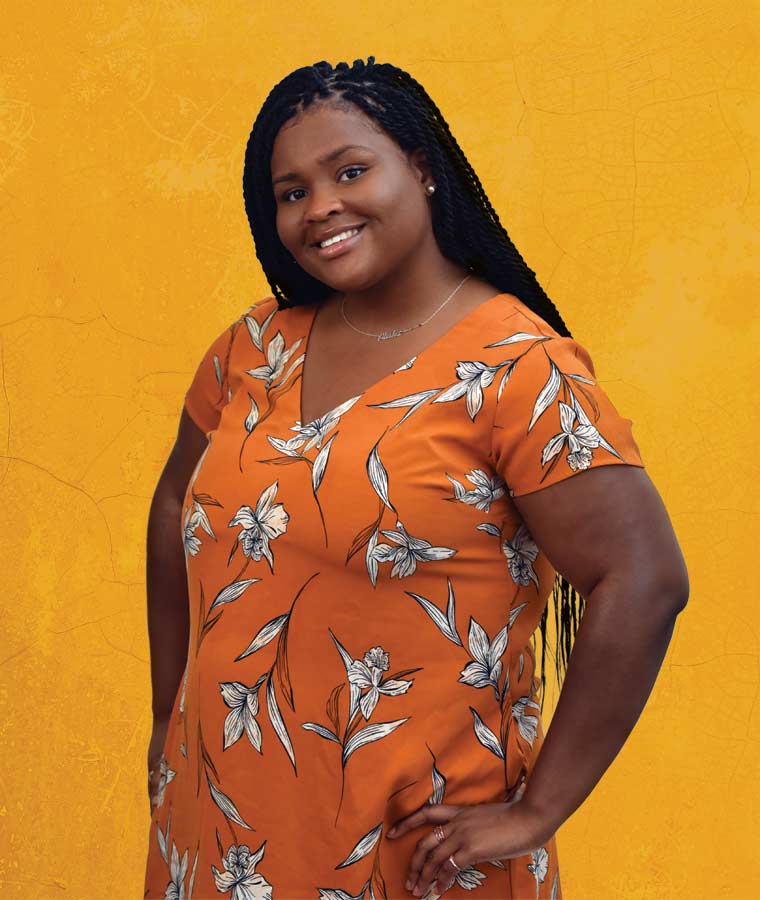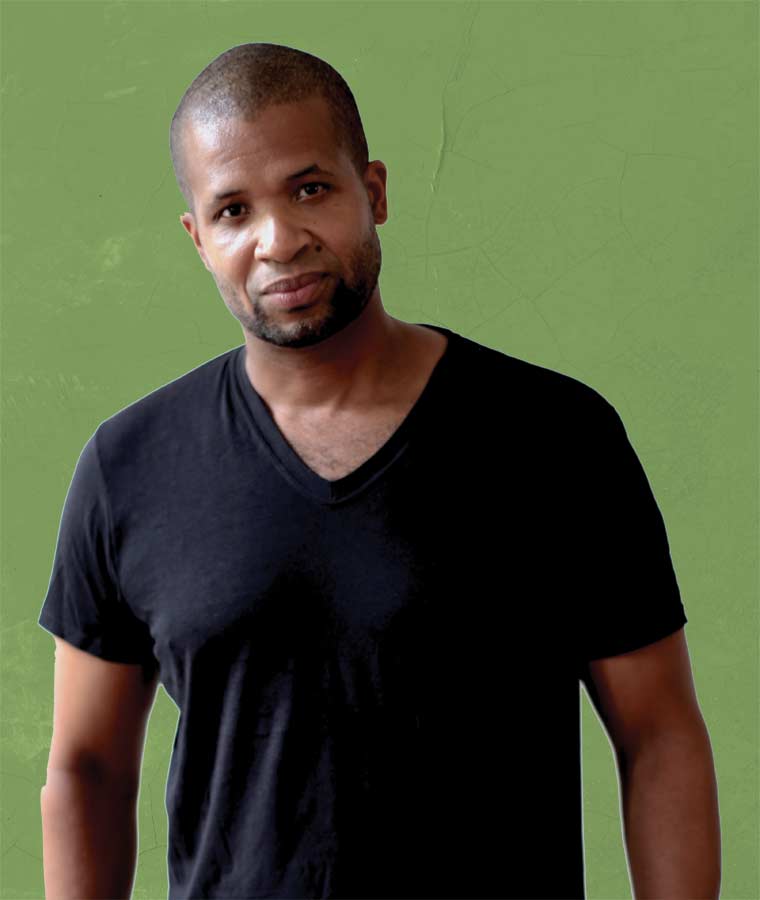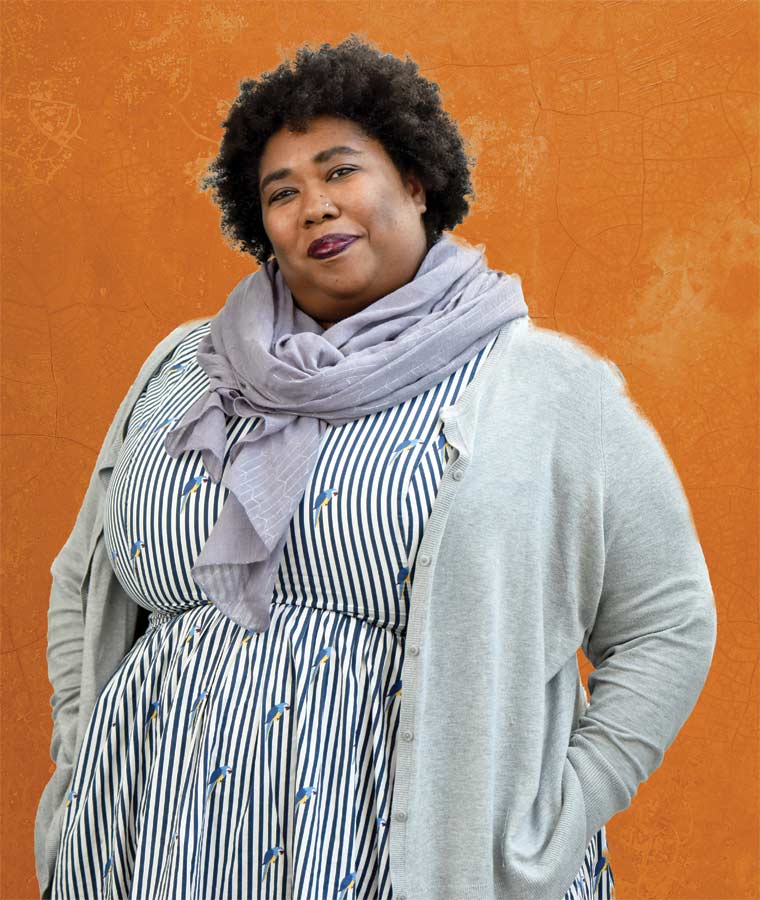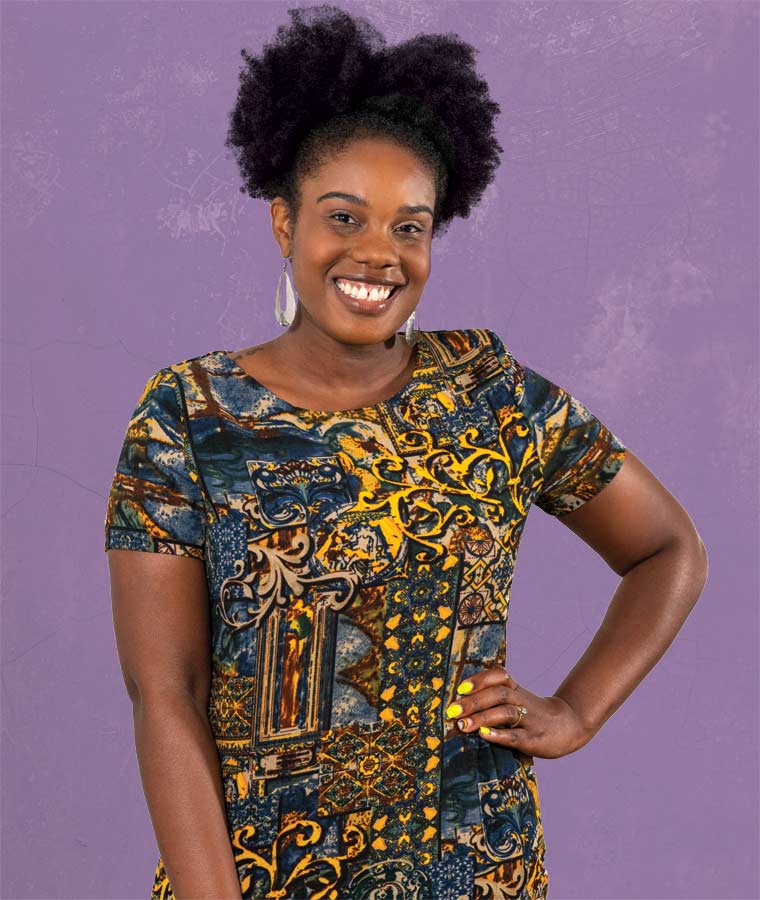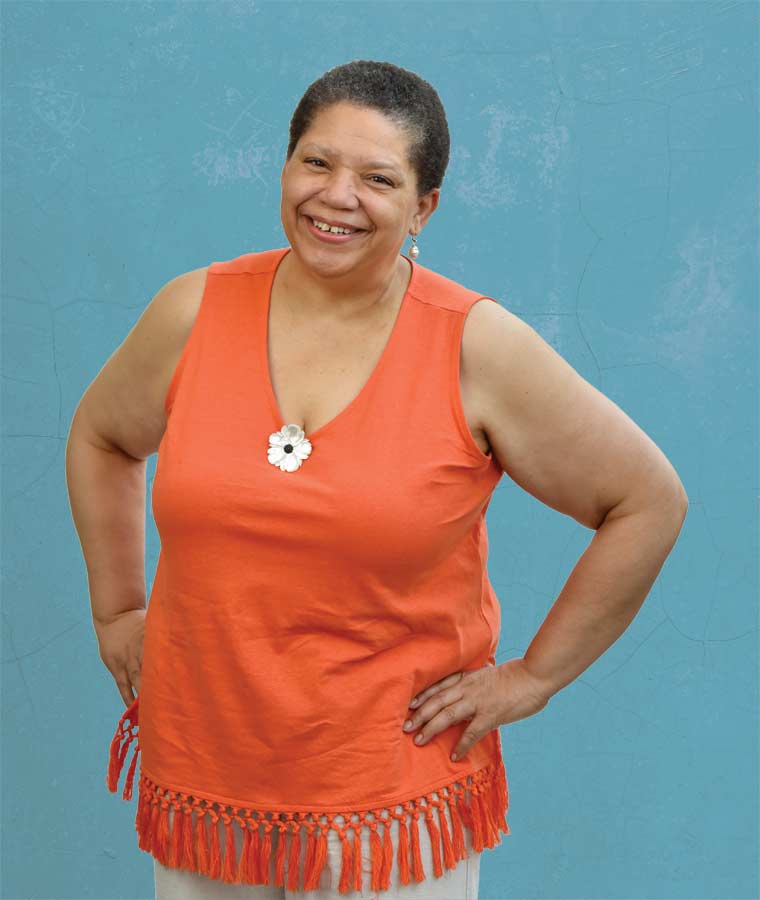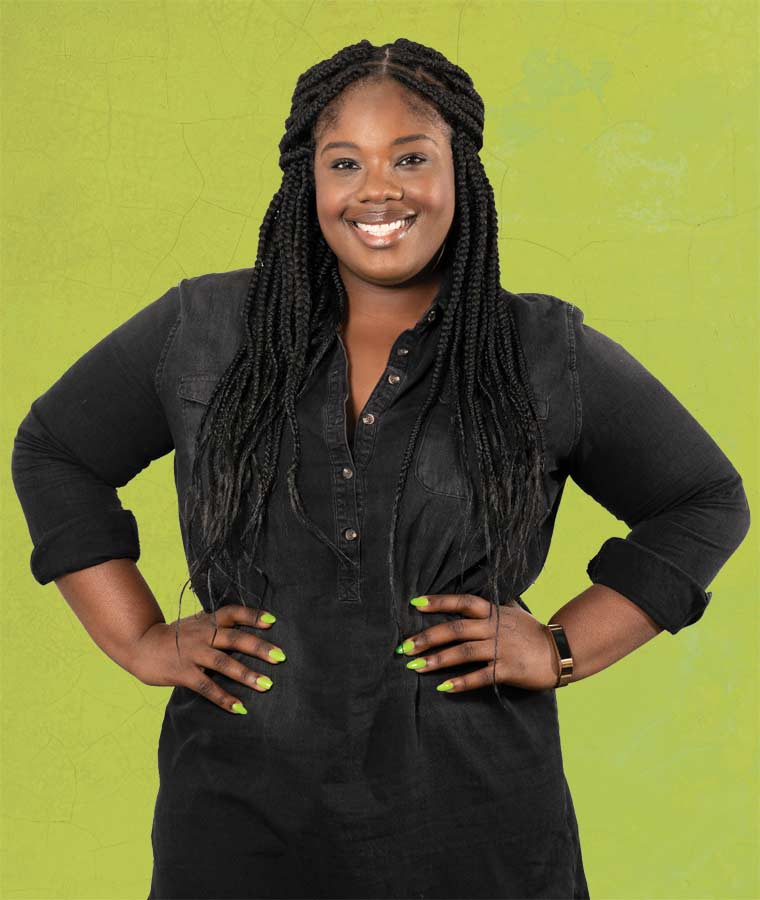Nearing graduation last spring, Alisha Nicole Brabham ’19 found herself reflecting on her experiences at Sarah Lawrence, wondering how they compared to those of black students before her.
So she did what any self-directed SLC student would do: She organized and moderated a panel discussion in early May with a diverse group of alumni spanning more than 45 years on campus. Hoping to foster a sense of community before, during, and after Sarah Lawrence, they shared insights and advice with more than 30 students. A sampling of their comments follows below.
Damani Baker ’96: I was here as a student, and I’ve been teaching filmmaking here for the past 15 years. I’ve watched the school change and grow. My sophomore year, there were no new men of color in the entire incoming class. We thought, this is not just about Sarah Lawrence; this is about higher education ... access ... wealth ... privilege. So we formed a group called MOCA, the Men of Color Association ... and we were pretty vocal.
Khaliah Williams ’02: There weren’t that many [black students], but I still think we were able to form a community. That kind of community-building I picked up [at Sarah Lawrence]. I never had a hard time getting the administration to hear me—but I was also in student government, and I worked in the admission office. When I graduated, I stayed and became the director of multicultural recruitment, and my whole focus was to make sure that people who look like me … [know] that this is your space as much as anyone else’s.
Rachel Smith ’10: Before I arrived, our first-year class started a Facebook group, and it was very clear that there was a mix of people, but not a lot of brown people. So I took it upon myself to find some of the brown women who had the same interests as mine. I started relationships with them digitally, and then by the time we met on campus we were able to connect. I was also lucky enough to be placed in a Garrison triple with another black woman who is still one of my good friends.
Rona Carr ’74: I arrived in 1970. At the time, [we] had the largest number of black students that had ever been admitted before. It was a close-knit community, and we had a “Black House” in Brandt (the house called Slonim now). I had never lived with black people I didn’t know, so it was a different experience.
Rachel: When I was here, we didn’t have a lot of brown people in administration, but I did see a lot of brown people on the staff. That’s where I found a lot of my community—the people working here and students I reached out to beforehand.
Mariah Smith ’13: As Rachel’s younger sister, I had a built-in group of people of color I really clung to my first year—and Common Ground. But, like Rachel said, fostering relationships with people on staff is really important because any face of color, a friendly face, anywhere, is just necessary and needed.
Rona: Part of being fearless and being here is finding your comfort level and stepping outside your immediate circle of friends. It’s also getting to know every single last person in your class. Every relationship you make here will pay off if you cultivate it.
Rachel: The other thing is to get leadership roles on campus. Whether that’s a job in the admission office, whether it’s in student government, whether it’s in residence life, use those positions of student power to disseminate your messages [of diversity] throughout the school.
I knew there was something about the core culture and about the space that I wanted to be in, which I’m sure most of you all felt as well. Something was calling me here.
Mariah: I wasn’t as involved as I should have been because I was focused on interning. That was helpful, but in other ways I could have stretched my Sarah Lawrence experience a little bit further. Speak up, speak to other people, and take up space. Be visible and be yourself. I think that’s the best thing you can do—and speak to people in administration and ask for what you want and need.
Rona: If you don’t ask, you don’t get.
Khaliah: It’s important to use your day-to-day interactions as a way to advocate for yourself and for others.
Damani: And when events happen, you have to show up. When you have brilliant activist students working really hard to get talented creatives here, there can’t be 10 people in the audience. [Once] we had Lauryn Hill on campus. This is the Fugees with Lauryn Hill in Bates—and there were 13 people. So in terms of activism on campus, it goes both ways. We can make demands, but we also have to be proactive and be participants in the stuff that does exist.
Khaliah: We [also] want students to know that there is an alumni base that wants to be there for them in whatever way we can be, so utilize the alumni office.
Rachel: I have reached out to the career services office, both as a student and as an alum. I knew there was a company that I wanted to work at, and I didn’t know how to get there. I just needed a connection.
Rona: We are very much an international community, so always reach out. You can pick up the phone, and you will get a voice that warms up immediately once they hear you’re from Sarah Lawrence.
Damani: I can honestly say, probably 80 percent of my work—feature films, commercials, music videos—is through relationships I’ve made either at Sarah Lawrence or high school. And I didn’t treat [people] like I was asking for something from them, but really as equals. You can dismantle power and supremacy by looking at it straight and just saying, ‘We’re equals.’”
Rachel: When we visited here, it looked very white and very not like me. But I knew there was something about the core culture and about the space that I wanted to be in, which I’m sure most of you all felt as well. Something was calling me here.
Mariah: What helped me immediately after graduating is that Sarah Lawrence taught us how to think critically. Especially as people of color, SLC taught us to think for ourselves, speak for ourselves, and be our own advocates, no matter what. At Sarah Lawrence, you learn how to be your own champion.
Excerpted and Edited by Mariah Smith ’13
Photos by Dana Maxson, Laura Lechner, and Damani Baker
